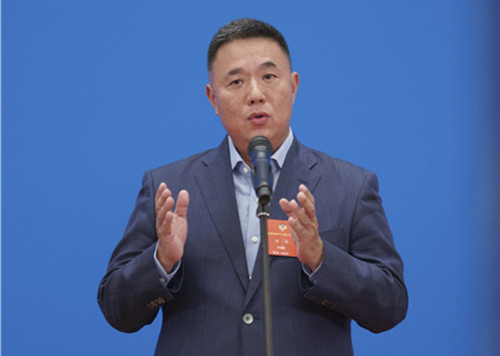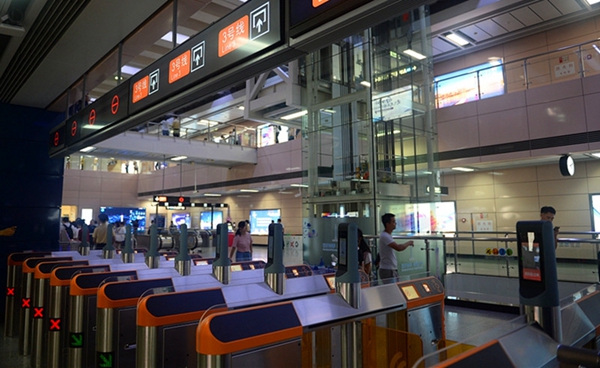New infrastructure will enhance China's economic resilience
- By Zhang Rui
 0 Comment(s)
0 Comment(s) Print
Print E-mail China.org.cn, May 24, 2020
E-mail China.org.cn, May 24, 2020
A top political advisor has claimed that China's economic resilience will become stronger as new infrastructure continues to improve.

Liu Wei, chairman & CEO of PCITECH and also a member of the 13th National Committee of the Chinese People's Political Consultative Conference (CPPCC), spoke to reporters on Thursday afternoon at the Great Hall of the People in Beijing before the opening of the third plenary session of the country's top political advisory body.
"Twenty years ago, even the controller for a subway screen door needed to be imported. Today, the world's first smart subway station was officially built in Guangzhou and 90% of it is domestically-made," he said, "We worked hard for 20 years to catch up with Western countries that have been developing their technical capabilities for 100 years," he said.
Liu shared another story about how artificial intelligence (AI) technology was applied to the fight against the COVID-19 epidemic.
In Guangzhou, local authorities installed a smart-platform to assist a small team of seven managers looking after a community of 70,000 people. The smart-platform utilized smart cameras, remote temperature sensing devices and facial recognition software to help manage prevention and control work.
At the same time, the platform used AI big data to intelligently manage the entire community, thereby forming precise governance and reducing the manpower of the entire community. "We were proud that such a very large community didn't have a single confirmed case from the outbreak. Therefore, artificial intelligence made the community's epidemic prevention and control work more precise and smarter."
Since 2008, the entrepreneur has served as the president and CEO of PCITECH, a professional provider of artificial intelligence technology and products in China. The company provides facial recognition services, video structured analysis, knowledge graph and intelligent big data services.

Liu said new infrastructure is not only useful in assisting epidemic prevention and control work, but also improves all aspects of people's lives. "Take the Guangdong-Hong Kong-Macao Greater Bay Area as an example, which is where I live. The authorities have established a 'one-hour living circle" which has been realized through intelligent rail transit. You can drink morning tea in Zhuhai in the early morning, inspect the goods at the Foshan factory in the morning, and enjoy Cantonese food in Guangzhou at noon with guests, and then you can return to the Shenzhen office for work in the afternoon, and entertain international guests at Victoria Harbor in Hong Kong by night. "
In one of his proposals he brought to the CPPCC, he called for the establishment of a national public transport real-name registry system. The construction of such a system would solve several problems including different local policies, different data standards and privacy information safety. He also called for more data sharing to better guarantee urban emergency management and streamline the data tracing process.
He pointed out that in the past, China had facilitated the rapid growth by building key infrastructure such as roads and bridges. "Now in the information age, the 'new infrastructure' capabilities, which are represented by AI, rail transit and 5G, will also greatly promote the development of China's economy. I also believe that with the continuous improvement of our new infrastructure and technologies, the resilience and vitality of China's economy will be further enhanced."






Go to Forum >>0 Comment(s)